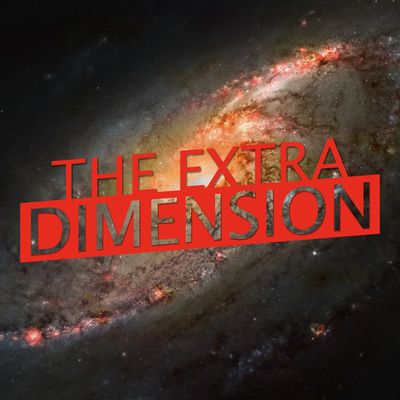The Extra Dimension #25: Directed Panspermia and Our Purpose in the Universe
Directed panspermia is the concept of seeding planets with microbial life. It comes with a lot of baggage, such as the question of whether or not we are the result of such seeding and whether or not we should actively seed the rest of the universe. Ians Buck and Decker tackle these and other related topics, such as what our purpose is in the universe.
Episode Index
00:00 | Intro
03:07 | How to Take Over the Universe (Extreme Space Colonization) | Eternally Curious #6 – YouTube
- How to colonize the universe with current technology
- Don’t send humans
- Send small, self-replicating probes (take inspiration from DNA)
- Probe has to be able to decelerate before landing
- Make many probes to account for most of them being lost along the way
- ~40 per galaxy should ensure one makes it
- This takes tons of energy, so we will have to disassemble a planet and create a Dyson Swarm
- Send probes out to every galaxy that is close enough for us to reach
- Closing question in video: “if the colonization of the universe is within the reach of an advanced civilization, how is it that we have not seen any signs of these civilizations? We haven’t seen any dyson swarms and we haven’t been colonized by other intelligent species. Or have we?”
So, have we been colonized? Are we (life on earth) a product of some other civilization seeding our planet with self-replicating machines using DNA as their data storage system?
- Directed panspermia – Wikipedia
- Directed panspermia – ScienceDirect
Such a civilization would not have to be anything like us
- They would not even have to be based on DNA
- Illustrated by the fact that we may send microorganisms to seed or machines to colonize space
- DNA is so ubiquitous on earth, it is puzzling that there are no other forms of storing genetic code. If life developed here on its own, there may have been several competing forms of genetic code. If we were seeded, it is more likely that only one form was used.
- If our progenitors wanted us to figure out that we were the product of seeding, they may have embedded a signature into our DNA
- In 2013 physicists claimed to have found such a signature; this has been refuted
- Given the rate at which mutations occur over the course of generations, such a signature may not be intact by now
Life on earth isn’t very fast at self-replication
- You would think that a civilization that wants to colonize would send something better-suited
- On the other hand, I am comparing that to technology that we are creating, so maybe we are better at creating the next iteration than our hypothetical creators were at creating us
- Technological civilizations may conclude that it is not advantageous to seed the universe in this manner, because civilizations that arise from such seeding may develop into rivals; but in order to discount Directed Panspermia as a possibility, we would have to argue that all technological civilizations would come to that conclusion
- May want to avoid contaminating other planets in order to keep them pristine for scientific research
- Extraterrestrial psychology may be wildly different from our own, so they may come up with very different conclusions
- If our progenitors can send probes to where we are, they can certainly send messages as well
- It’s possible they died off before we developed enough to receive messages
- If they sent out loads of probes, some of those should have matured into technological societies by now that are closer to our age
- Planets that are suitable to be seeded are numerous
May wish to seed other planets to make it more likely that life survives in the case of catastrophe on one planet; panbiotic ethics.
- Biotic ethics – Wikipedia
- Panspermia Society
- We want to avoid contaminating and possibly exterminating existing life with our own
- Seeding new planetary systems or protoplanetary discs would be just fine
- If you wanted your probes to replicate quickly and then send off copies to other nearby star systems, you would program that in as its primary directive. Humans certainly can’t agree on what our primary directive is.
- Is our purpose to increase complexity? To find a way to stop the heat death of the universe? To further only human interests?Why Cosmic Evolution Matters: Crash Course Big History #201 – YouTube
- Kevin MacLeod [Official] – Inspired – incompetech.com – YouTube
- How to Take Over the Universe (Extreme Space Colonization) | Eternally Curious #6 – YouTube
The Extra Dimension is released under a Creative Commons — Attribution 4.0 International license. Feel free to use any or all of it as long as you link back to https://thenexus.tv/ted25.
This episode of The Extra Dimension has a Fringe episode. You should really listen to The Fringe #447: TED #25 — Roko’s Basilisk!
Listen to more at The Nexus and follow us on Twitter and Google+ for our latest episodes and news.
